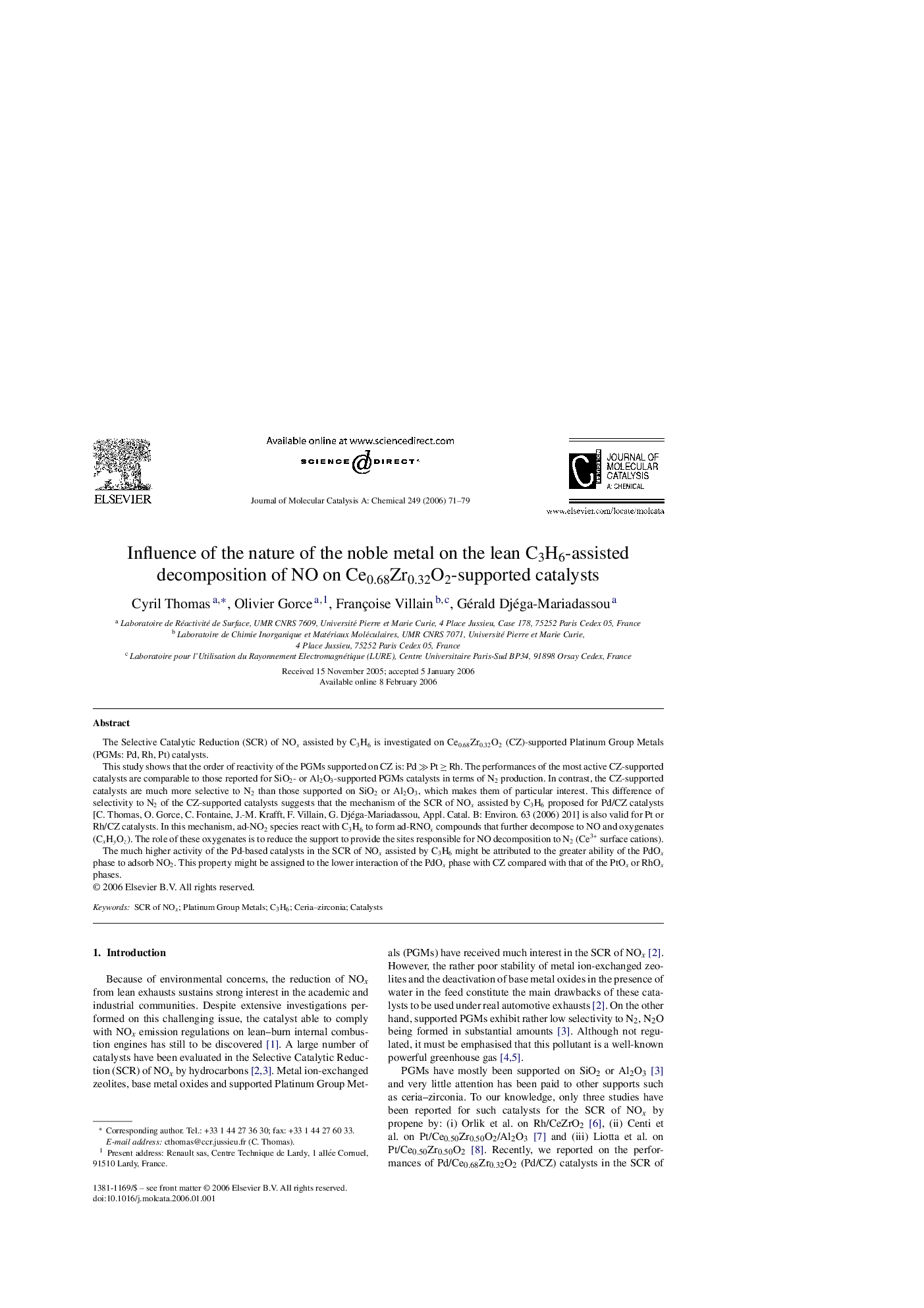| Article ID | Journal | Published Year | Pages | File Type |
|---|---|---|---|---|
| 69012 | Journal of Molecular Catalysis A: Chemical | 2006 | 9 Pages |
The Selective Catalytic Reduction (SCR) of NOx assisted by C3H6 is investigated on Ce0.68Zr0.32O2 (CZ)-supported Platinum Group Metals (PGMs: Pd, Rh, Pt) catalysts.This study shows that the order of reactivity of the PGMs supported on CZ is: Pd ≫ Pt ≥ Rh. The performances of the most active CZ-supported catalysts are comparable to those reported for SiO2- or Al2O3-supported PGMs catalysts in terms of N2 production. In contrast, the CZ-supported catalysts are much more selective to N2 than those supported on SiO2 or Al2O3, which makes them of particular interest. This difference of selectivity to N2 of the CZ-supported catalysts suggests that the mechanism of the SCR of NOx assisted by C3H6 proposed for Pd/CZ catalysts [C. Thomas, O. Gorce, C. Fontaine, J.-M. Krafft, F. Villain, G. Djéga-Mariadassou, Appl. Catal. B: Environ. 63 (2006) 201] is also valid for Pt or Rh/CZ catalysts. In this mechanism, ad-NO2 species react with C3H6 to form ad-RNOx compounds that further decompose to NO and oxygenates (CxHyOz). The role of these oxygenates is to reduce the support to provide the sites responsible for NO decomposition to N2 (Ce3+ surface cations).The much higher activity of the Pd-based catalysts in the SCR of NOx assisted by C3H6 might be attributed to the greater ability of the PdOx phase to adsorb NO2. This property might be assigned to the lower interaction of the PdOx phase with CZ compared with that of the PtOx or RhOx phases.
Graphical abstractLean deNOx assisted by C3H6 shows that the order of reactivity of PGMs supported on Ce0.68Zr0.32O2 is: Pd ≫ Pt ≥ Rh. The selectivity to N2 of these catalysts is much higher than those reported in the literature for zero-valent PGMs suggesting the existence of a deNOx mechanism different from that occurring on zero-valent PGMs. Figure optionsDownload full-size imageDownload as PowerPoint slide
